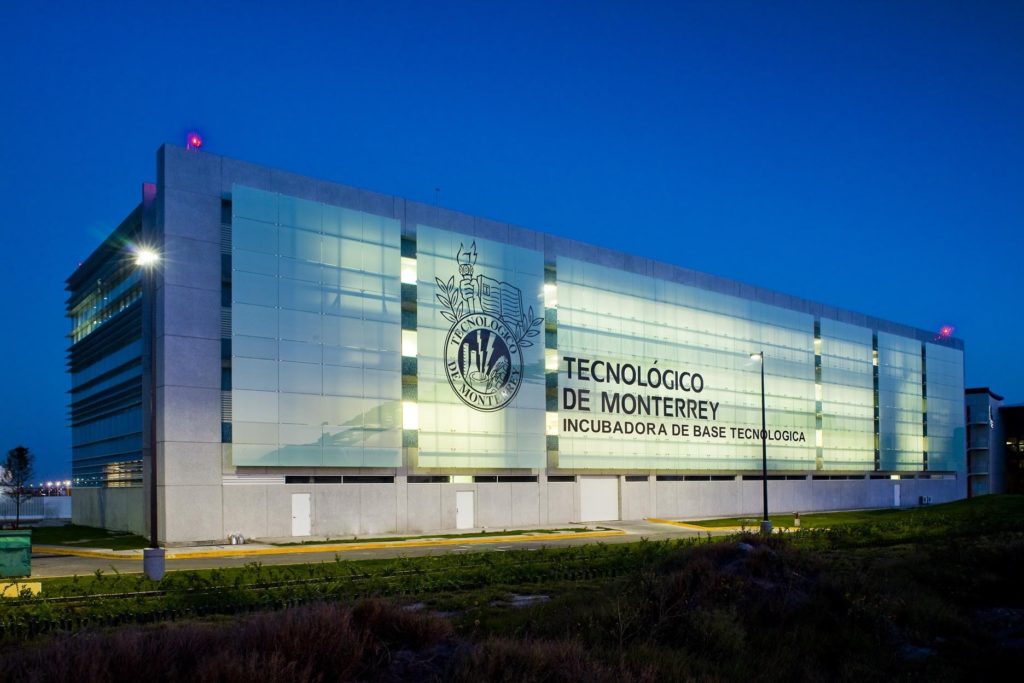In the past, Mexico has been known for its maquiladoras, low-cost assembly plants, and low-cost exports, but technological investments have propelled Mexico in another direction; the country now boasts the most promising tech scene in Latin America.
The US technology industry is taking advantage of this landscape to solve one of its biggest headaches – the shortage of qualified technological labor.
In our Tech Salaries In Mexico Report, we explore in detail all the important points of the technological landscape of Mexico as well as a comparison of how the salaries of programmers compete in the United States vs. Mexico. If you are interested in downloading the report, click the link at the end of this publication.
For now, we are going to break down the 3 facts that make the technological scene in Mexico a promising paradise for startups and leading companies.
1. Tech Hubs
Silicon Valley, New York, Los Angeles, Boston, and Tel Aviv are the five most important technological ecosystems in the world, according to Startup Genome.
With the huge investments that the technology industry receives every year, Mexico has strengthened, however, its tech ecosystem in 3 main cities: Guadalajara, Monterrey, and Mexico City.
Each of these tech scenes has its own specialties and advantages that make them unique.
Guadalajara’s Tech Scene
Guadalajara is not only about Tequila and mariachis but is also bustling with business and technology. Already fifteen large corporations, most of them American and 600 small and medium enterprises —many of them startups— export 70% of the products and software they produce.
Firms such as Oracle, HP, Motorola, and IBM have made Jalisco their second home.
“Guadalajara is closer to San Francisco than New York,” says Eliazar Parra, a 32-year-old computer programmer who works from his home in Guadalajara for companies such as AT & T and Facebook.
The Mexican government assures that the companies are interested in both local talent and infrastructure that already exists in the city of Guadalajara and nearby municipalities.
“The growth we have now, is not at the expense of employment in the United States,” warns Secretary of Innovation in Science and Technology, Jaime Reyes.
Tesla and Salesforce, for example, are weighing the possibility of Jalisco being a center for some of their operations.
Why?
Guadalajara has an excellent engineering school, the University of Guadalajara, which graduates more than 10,000 highly qualified engineers every year, but it is not the only one.
The talent produced throughout Mexico works very efficiently to grow any company that uses technology. There are many example success stories, such as the case of Kueski, a start-up dedicated to microcredits through the Internet that ensures that “talent is the new oil.”
Guadalajara is located in western Mexico less than a 5-hour flight from New York or Seattle, and 2 hours or less from Los Angeles and Texas.

Monterrey’s Tech Scene
Bordering Texas in northern Mexico is the city of Monterrey in the state of Nuevo León, a state that contributes 7.4% of GDP and 11.1% of all exports in the country; this represents more than all Central American exports put together.
An innovative city with enviable economic growth, it is undoubtedly an investment magnet.
In addition, the Center for Global Innovation and Entrepreneurship of the University of Texas, located in Monterrey, promotes the transfer of knowledge across borders to reinforce technological innovation in Mexico.
This attracts important startup communities and capital firms such as Alta Ventures, Naranya, and ImpactHub. Creating an environment of opportunities for companies that are integrated into the ecosystem to grow on a large scale.
Like Guadalajara, the labor demand that grows 10% each year is met by the best universities in the state and Latin America, the Tecnológico de Monterrey and the Universidad del Estado de Monterrey. Both institutions are famous for graduating more than 14,000 talented professionals and workers every year.
Its location is just a few hundred miles south of San Antonio, Texas, Monterrey is a well-positioned center for international entrepreneurship across the United States and Mexico border.

NOTIMEX/FOTO/JUAN CARLOS PÉREZ/FRE/HUM
Mexico City’s Tech Scene
Considered one of the largest cities in the world, Mexico City is the political, cultural, financial and entertainment center of Mexico.
With this great network of local commerce, the financial dynamism is capable of catapulting many entrepreneurs who want to start a project as well as big-name companies looking to expand their teams and offices.
National and international companies very easily find qualified talent in this city as it is home to many of the most prestigious universities in Mexico and Latin America, such as the National Polytechnic Institute (IPN), the National Autonomous University of Mexico (UNAM) and ITESM, which together graduate more of 45,000 engineers each year.
Mexico City’s tech scene could be considered as the most expensive among the three that we have mentioned. Its advantages, however, are many; not only it is at the center of everything that happens in the country, but its infrastructure is also much more developed and has direct connections from its airport to the main cities of the world.
2. Tech Professionals
The universities of Guadalajara, Monterrey, and Mexico City graduate more than 130,000 professionals and as we mentioned in our article “How To Overcome the Labor Shortage In The Tech Industry”; this is a solution to alleviate the inflated salaries that Silicon Valley software engineers may demand.
Currently, there are more than 650,000 people living in Mexico who already occupy IT positions.
According to our Tech Salaries Report, each city presents a different concentration of these professionals:
In Guadalajara, we see mostly concentrations of Mobile Developers, Back End Developers, and UX / UI Designers.
In Monterrey, we see mainly Full Stack Developers, Back End Developers, and Project Managers in the candidate’s pool.
And in Mexico City, the concentration of Full Stack Developers, Tech Supports, and System Admins dominates the tech scene.
There is no doubt that Mexico’s commitment to education in this sector is the reason for the rapid growth of the IT industry in the country, which has expanded three times faster than the global average. This leads us to the third fact about Mexico’s tech scene.
3. Top Tech Universities in Mexico
The firm QS that ranks the best universities in the area of Computer Engineering and Computer Science highlights the following as the best ones in Mexico:
- University of the Americas Puebla (UDLAP) – More than 90% of the UDLAP graduates accept a job offer in the first 6 months after graduation and 50% of students launch their own startups before graduating.
- Tecnológico de Monterrey – Ranked among the 200 best universities in the world. The Tecnológico de Monterrey achieved the highest rating in the categories of internationalization, innovation, employability, facilities and specialized criteria. It also obtained the 52nd position of employability in the world, with 94% of its graduates accepting a job offer within the first year of graduation.
- Instituto Politécnico Nacional (IPN) – It is a leading institute of public education in Mexico. It is also one of the largest public universities in Mexico and one the only with vocational schools with 19 technical secondary schools, 27 undergraduate schools, 20 research and higher education centers, and 16 continuing education centers. It is currently the third best university in the country in engineering.
- University of Guadalajara (UDG) – The University of Guadalajara is a fundamental institution to the contribution of human resources for the IT industry of the state and in the production of scientific and technological knowledge.
- University of Monterrey (UDEM)
- Technological Institute of Sonora (ITSON)
- Autonomous University of Coahuila (UAdeC)
- Anahuac
- University Autonomous University of Sinaloa (UAS)
- Benemérita Autonomous University of Puebla
The ingredients that makeup Mexico’s tech scene create the perfect blend so that each year more international companies look south of the border to achieve their business goals.
There are a lot of advantages to hiring remote workers in Mexico in addition to the savings U.S companies will see. We highlight all of this in our Tech Salaries Report 2019. We would be remiss, however, if we did not address the common question and concern for the loss of American jobs to remote Mexican employees. The numbers indicate that there is already a 1 million job deficit in the tech sector in the U.S. This means the U.S has fallen short in filling the high demand for these jobs





